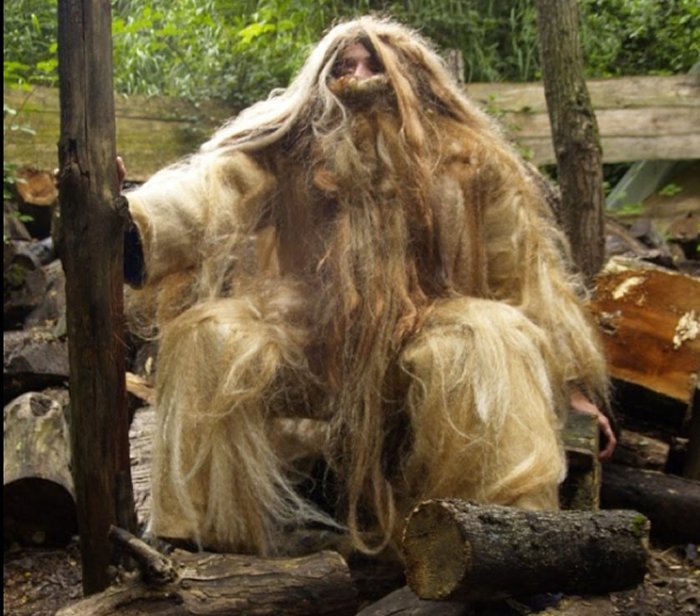Basajaun: Giant Blacksmith, ‘Lord Of The Woods’ And How People Learned Secrets Of Agriculture
A. Sutherland - AncientPages.com - The Basque people - one of Europe's oldest and strongest cultures - live in a mountainous land between Spain and France.
Mixed pagan and Christian beliefs have influenced their life. Their mythology - influenced by the Celts and the Roman mythologies - consists of myths, tales, and various fictional stories about ancient gods, heroes, and their deeds, closely associated with potent sources of nature or different aspects of human nature.
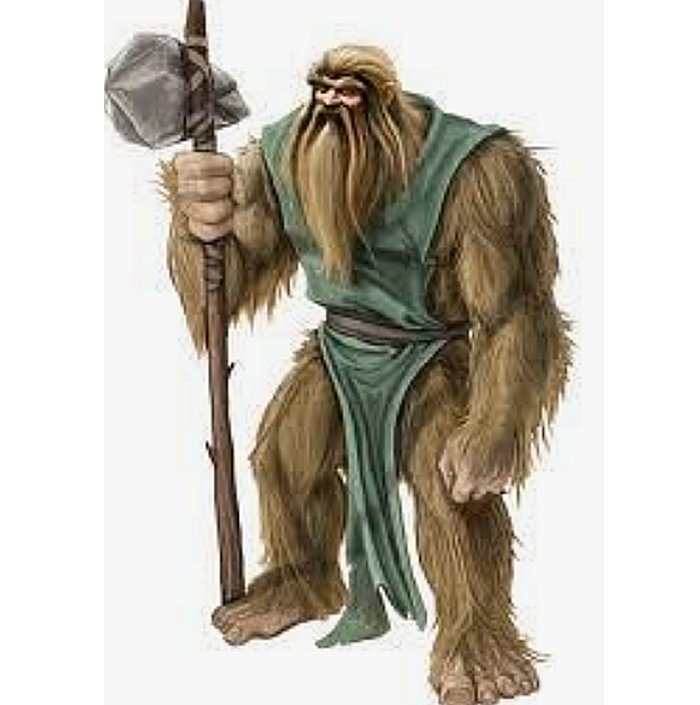
Basajaun in the mythology of Basque people. source
The old language of these people has survived, along with myths and legends celebrated in all festivities across the country.
One of the most famous figures in Basque mythology is Basajaun ("Lord of the Woods"), a huge, hairy, and hominid dwelling in dark forests and deep caves, but they were wise beings that inspired respect and fear. Tradition has it that, initially, Basayaunak were giant forest spirits about 9 to 10 feet tall who kept the secrets of architecture and built gigantic megaliths, mountains, and mills.
Basajaun guarded livestock, protected shepherds, and taught people secrets of good harvests, successful farming, and ironworking. He was even responsible for warning people about storms or wolves approaching, and when his mighty cry was heard somewhere in the mountains, they knew it was Basajaun's voice.
Therefore, he was often compared to the Roman Silvanus, an early forest and agricultural god who guarded plantations, farm fields, and wild trees and later cared for the shepherds and peasants.
In return, the deity only needed a piece of bread symbolically, so they sometimes entered houses or sheepfolds and openly used to take some food without humans daring to intervene.
Neanderthal-Like Appearance Of Basajaun
The god Basajaun was described as yeti, troll or giant ogre, or a mysterious man of the forest,
with the feet shaped like a wheel or soles of a circular shape, much like a cow's hooves. Some anthropologists and ethnographers believed this could be one of the Neanderthals, for example, who coexisted with human beings in Europe for several thousand years.
According to other tales of Basajaun, he is mischievous, and his temper varies, but he is not evil. His wife or female counterpart is Bas-Andre (Basandere) lacks the beard.
One fascinating legend says that long ago, only the Basayaunak (or Basajauns) knew how to plant, harvest, and mill wheat to make flour, but they kept this knowledge for themselves.
The Basque people needed to improve their lives and wanted someone's help to do it.
One Basque farmer devised a plan to steal the secret from Basajaun and give it to the human race.
It's an exciting story about how other mythological beings stole knowledge and gave it to humans.
From Greek mythology, we know that Prometheus defied the will of Zeus and traveled to Mount Olympus. He stole fire from the gods and gave it to humanity. We do not know who the Basque farmer was, and he may not have been of divine origin, but his story of stealing secret knowledge and giving it to humans is reflected in similar myths.
How Secrets Of Agriculture Were Stolen By A Basque Farmer
The Basque man made a bet with the Basayaunak to see who could jump over what they had harvested.
They laughed at him because they knew that he would be no serious competitor for them, and they laughed at his big shoes. They all jumped over the wheat quickly. When the Basque man tried, he fell on top of the heaps, and the Basayaunak laughed again.
Finally, the Basque man left them and went home. He was the one who won because his big shoes were full of grains of their wheat.
Still, the Basque man did not know how to use grains. Luckily, he was passing by the cave of one of the giants and heard him singing, and with the help of eavesdropping on a singing Basajaun, he learned how and when to plant many crops, including the recently obtained wheat. He also got knowledge of music for the first time.
According to most mythological sources, gods and goddesses have always been reluctant to share knowledge with humans.
Written by – A. Sutherland - AncientPages.com Senior Staff Writer
Updated on March 4, 2023
Copyright © AncientPages.com All rights reserved. This material may not be published, broadcast, rewritten or redistributed in whole or part without the express written permission of AncientPages.com
More From Ancient Pages
-
 Legendary Grianán Of Aileach Built By God Dagda Of Tuatha De Danann Was Once The Royal Seat Of The Kingdom Of Ailech
Featured Stories | May 13, 2021
Legendary Grianán Of Aileach Built By God Dagda Of Tuatha De Danann Was Once The Royal Seat Of The Kingdom Of Ailech
Featured Stories | May 13, 2021 -
 Strange Encounter With A Dead Medieval Army In Normandy – Or Were They Visitors From A Parallel World?
Featured Stories | Nov 5, 2017
Strange Encounter With A Dead Medieval Army In Normandy – Or Were They Visitors From A Parallel World?
Featured Stories | Nov 5, 2017 -
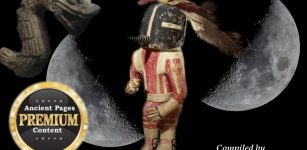 Secrets Of The Two Half Crescent Moons And The Serpent People
Ancient Mysteries | Jan 23, 2020
Secrets Of The Two Half Crescent Moons And The Serpent People
Ancient Mysteries | Jan 23, 2020 -
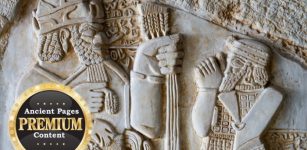 Odd Ancient Dwellings Of The Snake People – Clues From Biblical Lands – Part 2
Ancient Mysteries | Sep 10, 2020
Odd Ancient Dwellings Of The Snake People – Clues From Biblical Lands – Part 2
Ancient Mysteries | Sep 10, 2020 -
 Evidence Of A Lost Advanced Ancient Civilization In Cincinnati – Remarkable Artifacts And Ancient Bodies That Shouldn’t Exist
Ancient Mysteries | May 8, 2018
Evidence Of A Lost Advanced Ancient Civilization In Cincinnati – Remarkable Artifacts And Ancient Bodies That Shouldn’t Exist
Ancient Mysteries | May 8, 2018 -
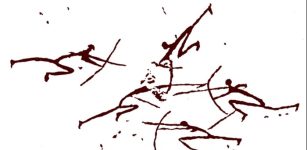 Violent Conflict Played A Crucial Role In Early Farming Societies In Neolithic Europe – New Study
Archaeology | Jun 19, 2023
Violent Conflict Played A Crucial Role In Early Farming Societies In Neolithic Europe – New Study
Archaeology | Jun 19, 2023 -
 4,000-Year-Old ‘Woodhenge’ Discovered In Denmark Is An Extraordinary Find!
Archaeology | Mar 10, 2025
4,000-Year-Old ‘Woodhenge’ Discovered In Denmark Is An Extraordinary Find!
Archaeology | Mar 10, 2025 -
 Ancient Bayanihan Tradition Of The Filipino People: Villagers Move Your Entire House Including Walls And Roof
Ancient Traditions And Customs | Sep 6, 2018
Ancient Bayanihan Tradition Of The Filipino People: Villagers Move Your Entire House Including Walls And Roof
Ancient Traditions And Customs | Sep 6, 2018 -
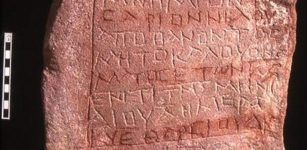 Nabataean Culture Lived On Long After Their Kingdom Disappeared – New Evidence
Archaeology | Feb 27, 2019
Nabataean Culture Lived On Long After Their Kingdom Disappeared – New Evidence
Archaeology | Feb 27, 2019 -
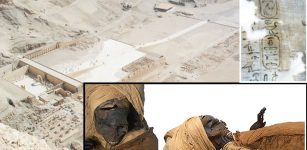 King Seqenenre Taa II Was Killed By Hyksos Invaders – Mummy Scans Reveal His Wounds
Archaeology | Feb 17, 2021
King Seqenenre Taa II Was Killed By Hyksos Invaders – Mummy Scans Reveal His Wounds
Archaeology | Feb 17, 2021 -
 Why Was Napoleon Bonaparte Defeated At Waterloo?
Ancient History Facts | Jul 3, 2017
Why Was Napoleon Bonaparte Defeated At Waterloo?
Ancient History Facts | Jul 3, 2017 -
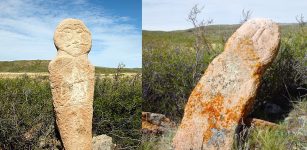 Balbals – Ancient Stone Guards Of The Kazakh Steppe
Artifacts | Dec 21, 2015
Balbals – Ancient Stone Guards Of The Kazakh Steppe
Artifacts | Dec 21, 2015 -
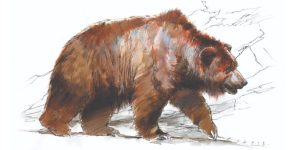 Evidence Humans Have Been Using Bear Skins For At Least 300,000 Years Discovered
Archaeology | Dec 27, 2022
Evidence Humans Have Been Using Bear Skins For At Least 300,000 Years Discovered
Archaeology | Dec 27, 2022 -
 Remarkable Ancient Animal Engravings Discovered In Unknown Cave In Sinai
Archaeology | May 1, 2020
Remarkable Ancient Animal Engravings Discovered In Unknown Cave In Sinai
Archaeology | May 1, 2020 -
 Ancient Basilica Cistern: Intriguing Hidden Subterranean World With Medusa Heads
Featured Stories | Dec 11, 2018
Ancient Basilica Cistern: Intriguing Hidden Subterranean World With Medusa Heads
Featured Stories | Dec 11, 2018 -
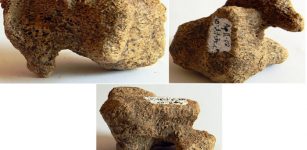 12,000 Years Ago Siberian People Possessed Technique To Soften Ivory And Create Toys Or Art Items
Ancient Technology | Jan 6, 2021
12,000 Years Ago Siberian People Possessed Technique To Soften Ivory And Create Toys Or Art Items
Ancient Technology | Jan 6, 2021 -
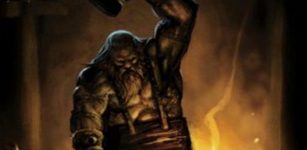 Ancient High-Technology: Automatons In Greek Mythology
Ancient Technology | Feb 22, 2015
Ancient High-Technology: Automatons In Greek Mythology
Ancient Technology | Feb 22, 2015 -
 Tree Rings On the Oregon Coast Show Evidence A Tsunami That Struck The Pacific Northwest In 1700
Archaeology | Sep 3, 2021
Tree Rings On the Oregon Coast Show Evidence A Tsunami That Struck The Pacific Northwest In 1700
Archaeology | Sep 3, 2021 -
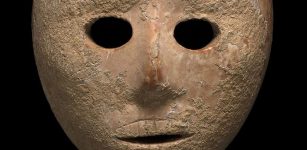 Impressive 9,000-Year-Old Stone Mask Uncovered In Southern Hebron Hills, Israel
Archaeology | Nov 30, 2018
Impressive 9,000-Year-Old Stone Mask Uncovered In Southern Hebron Hills, Israel
Archaeology | Nov 30, 2018 -
 The Colored Skeletons Of 9000-Year-Old Çatalhöyük (Catalhoyuk), Turkey – New Examination
Archaeology | Mar 18, 2022
The Colored Skeletons Of 9000-Year-Old Çatalhöyük (Catalhoyuk), Turkey – New Examination
Archaeology | Mar 18, 2022

